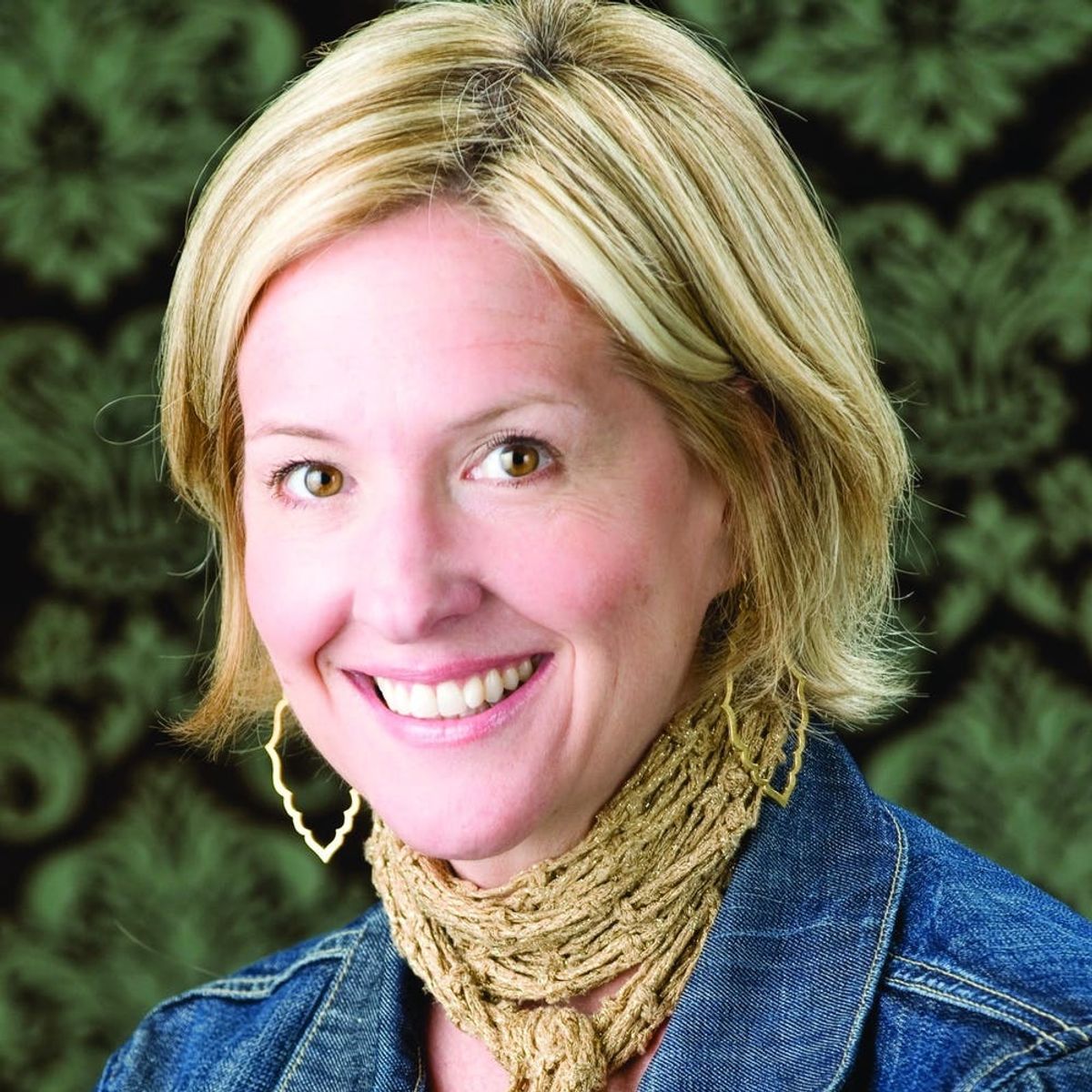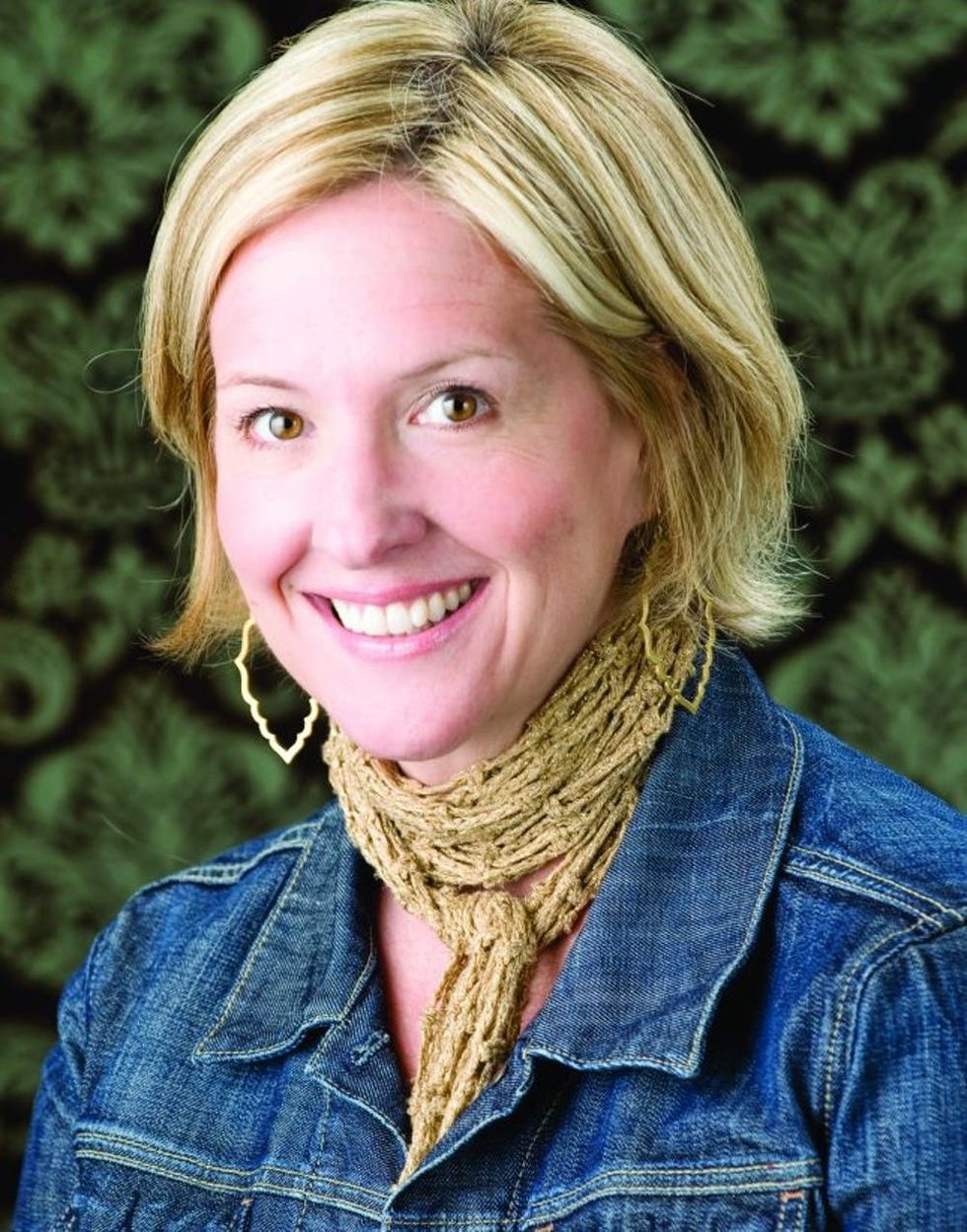Raising compassionate kids through imperfection.
Brené Brown Talks About the Importance of the Kitchen Table + Not Being a Perfect Parent

Lesley Chen is a California native who writes about travel, health/fitness, and other lifestyle topics. She has a serious case of RBF and exercises mainly to balance out an aggressive candy addiction.
Dr. Brené Brown has always been a champion of creativity and vulnerability. And her wildly popular TEDTalks and speeches have inspired millions (including all of us!) to live their most courageous lives. Brené’s latest project is The Kitchen Table Parenting Collection, a series of courses on raising compassionate children, and it’s all about embracing the imperfect, messy moments of parenthood. We chatted with Brené on being wholehearted and why it’s more important than ever to focus on love and family.

Brit + Co: Why did you turn your focus specifically on parenting for your next big course collection?
Brené Brown: I have been collecting data on parenting for the past 15 years, and I think we need this work now more than ever. After a really rough year — where there was so much divisiveness and hurt that many of us felt regardless of our political affiliations — I think that we are looking for a way to bring people together and lead with love. So much of that starts at home. We all want to raise courageous, confident children and that work happens in our messy, beautiful, wholehearted families.
Marianne Williamson writes, “There is no single effort more radical in its potential for saving the world than a transformation of the way we raise our children.” I wholeheartedly believe that we can make the world a braver place through the work in these courses.
B+C: Can you tell us a bit about your personal connection to the “kitchen table” as a gathering place that’s important to good parenting?
BB: I believe the best way to talk about parenting and families is through kitchen table conversations. I feel like the entire soul of my family is in our kitchen table. There are paint indentations from first-grade homework and splotches of ink from markers that bled through paper, to all the laughter and tears we have shared as a family, it’s all right there.
B+C: What does it mean to be imperfect and wholehearted? How do the two go together?
BB: We are all human and imperfect. As much as we would like it to seem like we have it all together, we don’t, especially when it comes to parenting! The good news is that we are all in this together and parenting perfection is not the goal. In fact, the best gifts — the best teaching moments — happen in those imperfect moments as our children watch us try to figure out what went wrong and how we can do better next time. Where we are on our journey of living and loving with our whole hearts is a much stronger indicator of parenting success than anything we can learn from how-to books.
B+C: Parents are facing a lot of new challenges in this super-divided world right now. How do you address those new challenges around bullying, showing others respect and dealing with conflicts?
B+C: Again, this was a divisive, rough year. We saw people in our country turn against each other and fear got the best of us. I think we need to take it back down to what we have in common: We love our children and want a better world for them. We have fervent disagreement about how we get there, but we all love our children and want the best for them.
I tried to strip this course down to the very basics: What does it take to create an environment for a child where that child feels seen, loved and worthy? The way we combat fear is with courage, love and vulnerability — leaning into those things and asking hard questions. I designed this course to give parents the tools to do that.
B+C: Creativity plays an important role in our view on parenting here at Brit + Co, and we know creativity is meaningful in many of your other previous courses. What part does creativity play in your approach for these new courses?
BB: We know from the research that the best way to move learning from our heads to our hearts is through our hands, so the creative activities are a big component. Not only are the activities valuable to work through as a parent, but parents can engage their kids and the whole family in them as a way to teach and embed the concepts.
B+C: What do you want people to come away with at the end of the courses? Is this just the first step in a longer journey? Do you have plans for more courses?
BB: These courses bring together the most important things that I learned about parenting from more than 15 years of research, including my work on vulnerability, courage, shame and empathy. As I was thinking about the content for this foundational course, I asked three questions:
1. What are the biggest issues that get in the way of practicing love, belonging and courage in our families?
2. What have I learned that completely changed the way Steve and I parent?
3. How can I teach this so the parents learn AND have the tools to teach these practices to their children?
The Gifts of Imperfect Parenting is the foundational course in The Kitchen Table Parenting Collection. After this course, we offer topic-specific deep dives. The first two are on boundary setting and expectation setting.
B+C: What has been your favorite imperfect moment of parenting?
BB: I have many of those moments every day. Most recently I missed my daughter’s last home field hockey game of her senior year when my flight was canceled due to mechanical difficulties. I cried behind a rack of clothing in the Raleigh airport for two hours. When I finally got home at 11pm that night, Ellen was waiting for me. When I saw her I told her I was so sorry and started crying. She said, “I know that was terrible for you, but I want you to know that I’m so grateful for you showing me what it looks like to do work you love and be an awesome mom. I want both, and one day, I’ll call you from an airport crying, and you’ll take care of me.” We hugged, cried and watched all the video from her game.
B+C readers, get 20 percent off Brené’s new courses with promo code BRIT2017. And let us know your thoughts on imperfect parenting @BritandCo!
(Photos via Brené Brown)

















